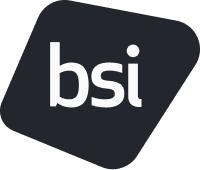What is a SMETA (Sedex Members Ethical Trade Audit)?
SMETA (Sedex Members Ethical Trade Audit) is one of the most widely used ethical audit formats for global supply chains. Developed by Sedex (Supplier Ethical Data Exchange), SMETA audits help businesses evaluate and improve their practices across key areas: labour standards, health and safety, environmental management, and business ethics.
SMETA audits are based on the ETI (Ethical Trading Initiative) Base Code, which is rooted in core ILO (International Labour Organization) conventions. This ensures alignment with internationally recognized standards for fair working conditions and ethical business conduct.
Unlike some audit types, SMETA combines global best practices with compliance to local laws and regulations, making it a flexible and credible tool for companies seeking to demonstrate ethical sourcing, supply chain transparency, and sustainability.
Whether you're responding to customer expectations or building responsible sourcing strategies, SMETA audits can help you benchmark performance and build trust.
Want to get started with SMETA? We can support you with the audit process, training, and tools to meet your ethical trade goals.
Is BSI approved to deliver SMETA?
Yes - BSI is an Affiliate Audit Company (AAC) of Sedex. Being granted an AAC account indicates BSI’s commitment to correctly use SMETA, the Sedex social audit methodology, and to conduct audits with quality and integrity. Additionally, BSI regularly participates in working groups comprising brands, retailers, NGOs, industry experts and selected audit firms, focused on continual improvement of SMETA. Looking for a credible SMETA partner? Let’s discuss your needs.
What are the benefits of a SMETA?
Many organizations are required to undergo SMETA audits to remain eligible as suppliers for major global brands. So, SMETA can enable businesses to improve supply chain transparency, meet compliance requirements, and open doors to new business opportunities. Contact us to explore how SMETA could benefit you.
How do SMETA 2-Pillar and 4-Pillar audits differ?
SMETA 2-pillar audits assess labour standards and health & safety. 4-pillar audits build on this by also evaluating environmental performance and business ethics, offering deeper insight into responsible sourcing. BSI provides both 2-pillar and 4-pillar SMETA audits, helping businesses meet Sedex expectations and enhance supply chain transparency.
Do BSI deliver supplier audit programs against other industry programs?
Yes, and if you’re working with a specific program we can support you. These industry audit programs align with industry expectations and help streamline compliance. Whether you need to audit against:
- Higg Facility Environmental Module
- Responsible Business Alliance (RBA)
- Social & Labor Convergence
- Responsible Jewellery Council (RJC)
- Pharmaceutical Supply Chain Initiative (PSCI), etc.
Let us know your focus area, and we’ll tailor support to match - reach out here.
Could my supply chain be audited against my own framework?
Absolutely. If your organization has specific ESG, sourcing, or operational standards, we can design an audit program around those. Talk to our team about building a bespoke framework that reflects your priorities and values. The scope can be tailored to your organization's needs and objectives, and industry requirements.





